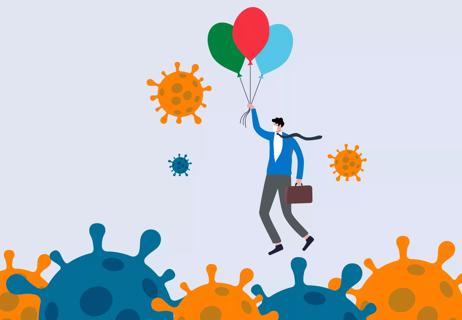The short answer from a pulmonologist

A: People respond or react to diseases in different ways. It’s not uncommon, especially with older patients. When elderly people get an infection, it’s possible for them to become confused. This is something that we see a lot, especially when someone is admitted to the hospital. In some of these cases, it’s not the infection affecting the brain. It’s just how the brain responds to the presence of an infection. Sometimes, confusion can be the result of a urinary tract infection or another medical condition. When this happens, we’ll evaluate the patient for signs of meningitis or an infection that could be affecting the central nervous system.
Advertisement
Cleveland Clinic is a non-profit academic medical center. Advertising on our site helps support our mission. We do not endorse non-Cleveland Clinic products or services. Policy
The dizziness that’s been associated with the virus can be a result of dehydration. When someone has a fever, they actually lose a lot of water just from the fever itself. Some people come to the hospital with infections and they’re actually very dehydrated. So, one of the first things that they need is an IV of fluids.
One coronavirus symptom that has been more common is the loss of the sense of smell. This signifies that the infection has caused inflammation in the nerve endings inside of the nose that are responsible for our sense of smell. But again, the major things that people should look for are the common signs like cough and fever. Not everyone will experience loss of smell, but not experiencing it doesn’t mean that you don’t have the virus.
— Pulmonologist Humberto Choi, MD.
Advertisement
Learn more about our editorial process.
Advertisement

It’s best to treat flu-like symptoms as if you have COVID-19

COVID-19 reinfections are on the rise, and there’s no limit to how many times you can get infected

What we do – and don’t – know about the latest COVID-19 variant

A look at four medications and how they're being used

More data that two are directly linked

Are you wearing yours the right way?

The short answer from an infectious disease specialist

It's all about small goals and riding the emotional wave

Type 2 diabetes isn’t inevitable with these dietary changes

Applying a hot or cold compress can help with pain